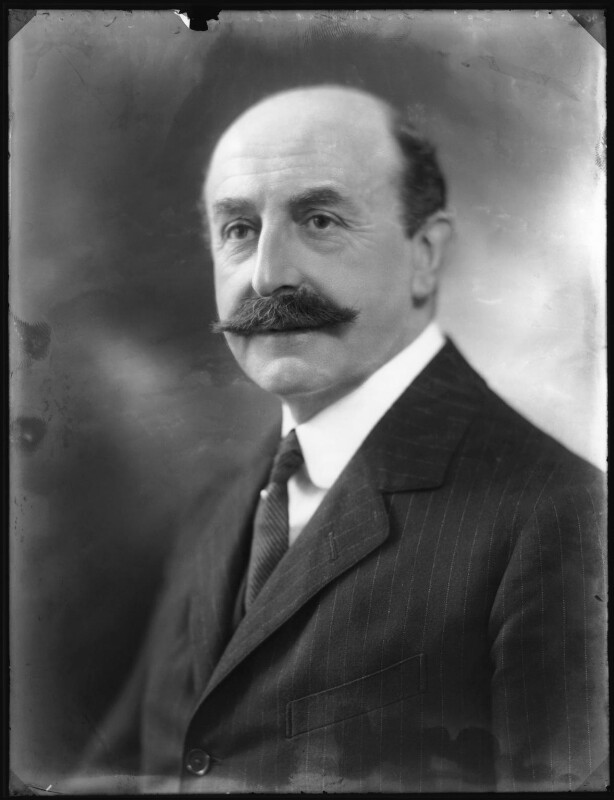Montague Barlow on:
[Wikipedia]
[Google]
[Amazon]
 Sir Clement Anderson Montague-Barlow, 1st Baronet, KBE (28 February 1868 – 31 May 1951) was an
Sir Clement Anderson Montague-Barlow, 1st Baronet, KBE (28 February 1868 – 31 May 1951) was an
Royal Commission on the Distribution of the Industrial Population (Barlow Commission)
* * 1868 births 1951 deaths Conservative Party (UK) MPs for English constituencies Montague-Barlow, Clement Anderson, 1st Baronet Knights Commander of the Order of the British Empire Members of the Privy Council of the United Kingdom UK MPs 1910–1918 UK MPs 1918–1922 UK MPs 1922–1923 Members of London County Council Municipal Reform Party politicians Members of the Parliament of the United Kingdom for Salford South {{England-Conservative-UK-MP-1860s-stub
 Sir Clement Anderson Montague-Barlow, 1st Baronet, KBE (28 February 1868 – 31 May 1951) was an
Sir Clement Anderson Montague-Barlow, 1st Baronet, KBE (28 February 1868 – 31 May 1951) was an English
English usually refers to:
* English language
* English people
English may also refer to:
Peoples, culture, and language
* ''English'', an adjective for something of, from, or related to England
** English national ide ...
barrister and Conservative Party
The Conservative Party is a name used by many political parties around the world. These political parties are generally right-wing though their exact ideologies can range from center-right to far-right.
Political parties called The Conservative P ...
politician
A politician is a person active in party politics, or a person holding or seeking an elected office in government. Politicians propose, support, reject and create laws that govern the land and by an extension of its people. Broadly speaking ...
.
Life
Montague-Barlow was born Clement Anderson Barlow at St Bartholomew's Vicarage, Clifton,Gloucestershire
Gloucestershire ( abbreviated Glos) is a county in South West England. The county comprises part of the Cotswold Hills, part of the flat fertile valley of the River Severn and the entire Forest of Dean.
The county town is the city of Gl ...
, and preferred to be known under his second name, Anderson, rather than his first, Clement. He received a Master's degree
A master's degree (from Latin ) is an academic degree awarded by universities or colleges upon completion of a course of study demonstrating mastery or a high-order overview of a specific field of study or area of professional practice.
and an LL.D.
Legum Doctor (Latin: “teacher of the laws”) (LL.D.) or, in English, Doctor of Laws, is a doctorate-level academic degree in law or an honorary degree, depending on the jurisdiction. The double “L” in the abbreviation refers to the early ...
from the University of Cambridge
The University of Cambridge is a public collegiate research university in Cambridge, England. Founded in 1209 and granted a royal charter by Henry III in 1231, Cambridge is the world's third oldest surviving university and one of its most pr ...
and practised at the bar. Between 1910 and 1923 he represented Salford South in the House of Commons
The House of Commons is the name for the elected lower house of the bicameral parliaments of the United Kingdom and Canada. In both of these countries, the Commons holds much more legislative power than the nominally upper house of parliament. T ...
. In 1922 he was admitted to the Privy Council upon becoming Minister of Labour Minister of Labour (in British English) or Labor (in American English) is typically a cabinet-level position with portfolio responsibility for setting national labour standards, labour dispute mechanisms, employment, workforce participation, traini ...
, a position he served in until 1924. He was made a Knight Commander of the Most Excellent Order of the British Empire
The Most Excellent Order of the British Empire is a British order of chivalry, rewarding contributions to the arts and sciences, work with charitable and welfare organisations,
and public service outside the civil service. It was established o ...
in 1918 and in 1924 he was created a baronet, of Westminster in the County of London.
In 1938, Neville Chamberlain's government asked Barlow to chair a royal commission into the urban concentration of population and industry, "The Royal Commission on the Distribution of the Industrial Population", which became known as the Barlow Commission. Its report, published in 1940, raised the problem of large towns as a public issue for the first time, and concluded that "planned decentralisation" was favourable. The report was largely ignored at the time, as it came shortly after the outbreak of the Second World War
World War II or the Second World War, often abbreviated as WWII or WW2, was a world war that lasted from 1939 to 1945. It involved the vast majority of the world's countries—including all of the great powers—forming two opposi ...
, but its conclusions were a major factor behind the new towns movement
The New Towns movement refers to towns that were built in the United Kingdom after World War II and the associated social movement to advocate for their construction. These towns were planned, developed, and built with two main intentions: to reme ...
after the war, which led to the creation of 27 new towns.
In 1946 Barlow changed his last name to Montague-Barlow.
Montague-Barlow died in May 1951, aged 83, when the baronetcy became extinct.
See also
*Patrick Abercrombie
Sir Leslie Patrick Abercrombie (; 6 June 1879 – 23 March 1957) was an English regional and town planner. Abercrombie was an academic during most of his career, and prepared one city plan and several regional studies prior to the Second Worl ...
References
External links
*Royal Commission on the Distribution of the Industrial Population (Barlow Commission)
* * 1868 births 1951 deaths Conservative Party (UK) MPs for English constituencies Montague-Barlow, Clement Anderson, 1st Baronet Knights Commander of the Order of the British Empire Members of the Privy Council of the United Kingdom UK MPs 1910–1918 UK MPs 1918–1922 UK MPs 1922–1923 Members of London County Council Municipal Reform Party politicians Members of the Parliament of the United Kingdom for Salford South {{England-Conservative-UK-MP-1860s-stub